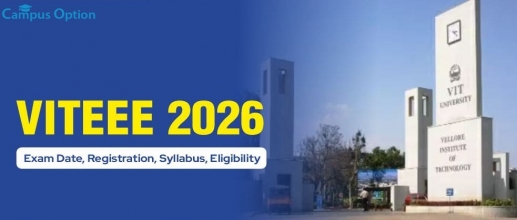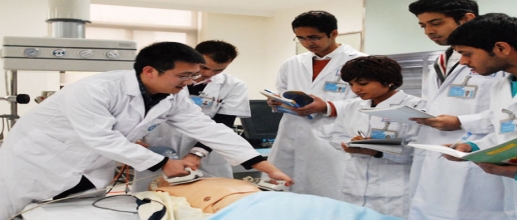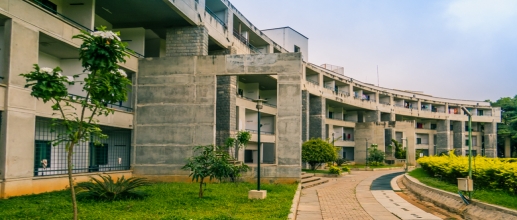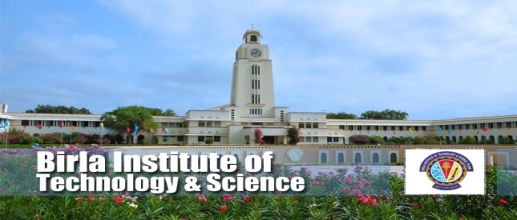Top Electronics Engineering Colleges in Delhi 2026- Fees, Admissions, Placements
list of Best Electronics engineering colleges in Delhi with BE/B Tech fee structure, admission procedure, placements, rankings, entrance exam and build a path to great career ahead !!!
List of 2 Electronics Engineering Colleges in Delhi
Frequently Asked Questions (FAQs):
Which is the best institute for engineering in Delhi?
Based on the NIRF ranking, Delhi's IIT is the best college for engineering, with a ranking of 2. Other engineering colleges in Delhi which were ranked are JMI New Delhi-26; DTU Delhi,- 29; NIT Delhi-51; and NSUT Delhi-60. These colleges have an excellent academic reputation for their engineering courses and have well-programs structured. Amity University Gurgaon, KIET Ghaziabad, ABES Engg College Ghaziabad, etc., are some of the best private engineering colleges in Delhi.
Which engineering college has the lowest fees in Delhi?
Galgotias College of Engineering and Technology has the lowest fee structure for the BTech course in Delhi. It is renowned for its cutting-edge campus, innovative teaching-learning methodology, and cutting-edge facilities, which combine to create a setting that fosters the development of well-rounded corporate personalities.
Which college has the highest placement in Delhi?
Delhi has been home to several engineering colleges and almost all the colleges have an excellent record in placement. The colleges have good industry linkages with top Industries and organizations that offer students for internships, projects and placements. The colleges have professional career services teams which support the students from the career services offering a one stop services on placements. These colleges have a very effective alumni base that assists the students in finding employers once they are through with their studies.
IIT Delhi - Indian Institute of Technology [IITD], New Delhi
- Average Package: INR 25,82,000
- Highest Package: INR 2,00,00,000
Delhi Technological University - [DTU], New Delhi
- Average Package: INR 23,70,000
- Highest Package: INR 82,05,000
Jamia Millia Islamia University-[JMI], New Delhi
- Average Package: INR 9,00,000
- Highest Package: INR 25,00,000
Guru Gobind Singh Indraprastha University - [GGSIPU], New Delhi
- Average Package: INR 12,00,000
- Highest Package: INR 45,00,000
Which is the best private institute for B-Tech in Delhi?
The top private Engineering Colleges in Delhi are Maharaja Agrasen Institute of Technology, Bharathi Vidyapeeth College of Engineering, Galgotias University, and Guru Tegh Badhur Institute of Technology.
Which are the top government engineering colleges of Delhi?
Delhi has many government engineering colleges. These institutions are famous for offering high academic programs, professional teachers, and low tuition costs. Numerous disciplines exist in engineering, and all its courses are closely linked to the industry. Delhi's government engineering colleges are relatively cheap compared to other private engineering colleges.
- IIT Delhi
- Jamia Milla Islamia
- Delhi Technological University
- National Institute of Technology Delhi
- Netaji Subhas University of Technology (NSUT)
- Indraprastha Institute of Information Technology Delhi
- Guru Gobind Singh Indraprastha University
- Indira Gandhi Delhi Technical University for Women
How to get admission to Delhi Engineering College?
Top engineering colleges in Delhi usually require passing academic scores and assessments, entrance exams, and certain other requirements.
- Students must have physics, mathematics and chemistry with at least 50%-60% marks.
- Candidates to write entrance exams like JEE Main and JEE Advanced.
- Candidates who pass the various entrance examinations are required to attend various counselling sessions, depending on the positions they have been offered, in order to be posted to their desired colleges and courses.
- Certain colleges might use group discussions and interviews as components of a candidate selection process to assess the contenders' well-roundedness, including their teamwork skills, problem-solving skills, and personality traits.
Which engineering college in Delhi has direct admission for BTech?
The engineering colleges that offer direct admission to students in Delhi are SRM University, Delhi; Amity University, Gurgaon; KIET Ghaziabad; and ABES Engineering College, Ghaziabad. This means that students can be granted direct admission into the college or university without sitting for any entrance examination.
Which engineering colleges have a Delhi quota?
Engineering colleges and universities recognized by most universities, like Delhi Technological University (DTU) and Netaji Subhash Institute of Technology (NSIT), are government-aided and, therefore, have an 85 per cent state quota. Delhi Quota means admission of students in engineering colleges in Delhi who have studied in schools in Delhi for not less than two years before taking the entrance examination.
What are the fees of DU for engineering?
Several colleges under Delhi University offer BTech, though candidates are advised to choose from reputed institutes, bearing in mind the overall ranking of Delhi University as a university. The total tuition fees for four years are INR 4,30,000/-. This fee amount is according to the official website or the body that sanctions an undertaking.
Which Delhi engineering college has 100% placement in India?
The Indian Institute of Technology (IIT), Delhi and Shiv Nadar University have claimed to provide 100% placements. These universities' remarkable placement statistics are partly due to their emphasis on practical learning and skill development, strong industry ties, and specialized career services departments.
How many Engineering colleges are there in Delhi NCR?
The city has 427 colleges offering engineering education, 64 of which are state-funded and 363 private. Delhi NCR has quite a number of engineering colleges that offer quality education to their students and are recognized all over the world. Some of the reputed engineering colleges in Delhi NCR are IIT Delhi, JMI, and DTU.
What are the JEE Main accepting Engineering colleges in Delhi NCR?
Many engineering colleges offer admission through JEE Main scores. Given below are some of the engineering colleges in Delhi which accept JEE scores:
- IIT Delhi
- Delhi Technological University (DTU)
- Jamia Millia Islamia (JMI)
- Galgotias College of Engineering and Technology - [GCET]
- Shiv Nadar University - [SNU]
- Sharda University
- Bennett University
How to score good marks in JEE Mains?
For the preparation of JEE Mains, one must focus on the NCERT textbooks as much as possible. It means that lessons learnt in NCERT books are the most basic ones. Questions are posed in the JEE Main exam from which students can assess their conceptual learning and analysis capabilities. So, students should develop their conceptual knowledge and solve numerical problems for each topic. The final piece of advice is to work on the previous year's papers so as to understand the level of the exam and the manner in which questions are framed.
Search Engineering College by Course in Delhi
LATEST NEWS & ARTICLES
Date: 17-12-2025
VITEEE 2026 : Check Registration Last Date & Revised Exam Pattern
Vellore Institute of Technology has began the VITEEE 2026 registration process. Candidates w...
Date: 17-12-2025
CUET PG 2026 Application Form Released; Check Exam Dates, Exam Pattern
The National Testing Agency (NTA), has announced the registration for CUET PG 2026. Candidates wh...
Date: 13-12-2025
Top Medical Colleges in Karnataka- Complete Guide for MBBS Aspirants
Karnataka is one of India’s strongest hubs for medical education. From nationally ranked te...
Date: 13-12-2025
Why Bangalore is India’s MBA Hub
Bangalore, widely known as the Silicon Valley of India, is not only a global IT powerhouse but al...
Date: 13-12-2025
BITSAT 2026 Exam Registration
BITSAT 2026 Exam: Registration, Eligibility, Exam Date, Syllabus, Pattern & Complete Guide ...

![Delhi University - [Delhi University]](https://www.campusoption.com/images/colleges/logos/28_03_15_094832_DU.jpg)
![Deshwal Institute of Information Technology & Management - [Deshwal Institute of Information Technology & Management]](https://www.campusoption.com/images/colleges/logos/07_03_17_114009_DI_LL.jpeg)




